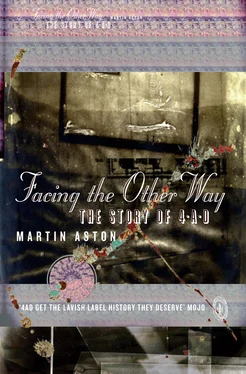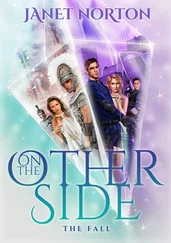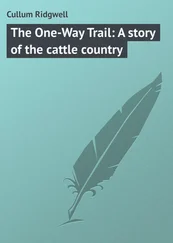Ivo’s mother was diagnosed with tuberculosis when he was born in 1954, keeping her and the baby apart for three months for fear of passing on the potentially fatal disease. It was a harsh domestic regime of a father with a farm to run and a mother raising eight children without modern appliances … ‘I don’t remember many visitors,’ says Ivo. ‘My uncles would come for the weekend, and then we’d have fun.’
In any environment of emotional deprivation, any form of art can become a vital lifeline, a source of comfort, inspiration and imagination. Ivo’s pre-teen memories were of the rousing film soundtracks to South Pacific and The Sound of Music . Even earlier, West Side Story , the first ‘teen’ musical, was his introduction to the culture of attitude, fashion and sex ( ‘Got a rocket in your pocket, keep coolly cool, boy!’ ). All three musicals emphasised the urge to escape, from ‘Climb Every Mountain’ and ‘Over The Rainbow’ to the lovers Tony and Maria from West Side Story believing, ‘there is a place somewhere’ – a better place, beyond the control of authority and circumstances.
Eight children meant pop music was always in the Watts-Russell house. For Perry, it was The Beatles and The Rolling Stones. ‘There was a three-year age gap between me and Ivo,’ he says, ‘so they couldn’t be his soundtrack to adolescence.’ Ivo has no memory of why the first single he bought at the age of six was ‘I Can’t Stop Loving You’ by R&B legend Ray Charles. EPs by The Who and The Kinks followed, but his epiphany, the road from Oundle to Damascus, was The Jimi Hendrix Experience miming to the trio’s debut single ‘Hey Joe’ on a 1967 edition of BBC TV’s weekly flagship music show Top of the Pops . Their Afro hairstyles alone would have triggered intrigue in middle England, even consternation. But it was Hendrix’s sound – liquid, sensual, aching, unsettling, alien – that had coloured the imagination of an impressionable twelve-year-old, thrilled at the subversive invasion of a drab farmhouse lounge.
‘My sister Tessa and my parents were watching too and I remember a shared feeling of jaws dropping, of confusion,’ Ivo recalls. ‘I thought, this is having an impression, and being very interested by that. The next Saturday, I listened to [BBC radio DJ] John Peel’s Top Gear , with sessions by Cream, Hendrix and Pink Floyd. I bought Hendrix’s Are You Experienced and Pink Floyd’s equally mind-altering Piper At The Gates Of Dawn . I’d finally found, to paraphrase John Lennon, the first thing that made any sense to me. My gang.’
These weren’t the cool Sharks or Jets gangs of West Side Story , but the freaks, in all their animalistic glory. In this first flowering of psychedelia, the possibilities were endless. ‘How mad was [Pink Floyd’s] “Apples And Oranges” as a single?’ says Ivo. ‘What a brilliant reflection of the times. Aurally and visually, this was the counter-culture, the hope for the future.’
Despite his advanced tastes, Ivo – or George as he was affectionately known – wasn’t allowed to join Perry and his friends at a concert with the epic bill of American R&B singer Geno Washington and the kaleidoscopic heaviness of Pink Floyd, Cream and The Jimi Hendrix Experience. His first ever show was more pop-centric but still staggering – The Who, Traffic, Marmalade and The Herd. ‘Ivo was much more obsessive about music than I was,’ Perry recalls. ‘He wasn’t yet distracted by girls, so music was the means by which you formed an identity. It spoke to him in ways that regular life didn’t. He’d listen to Peel religiously, while I was so taken up with school.’
While his older brother studied intensely to pass his Oxbridge entrance exams, Ivo wasn’t academic (or sporty), and music played an even more defining role. ‘I felt like I didn’t belong anywhere,’ he says. ‘I couldn’t relate to anything I was being taught.’
His first chance to physically escape came that summer of 1968. Aged fourteen, Ivo and a school friend plotted to follow their friend Peter Thompson, one year older, to London. Thompson was squatting in a dilapidated house in the city centre near Marble Arch, helping to distribute Richard Branson’s first venture, the free magazine Student . It was in this house, which doubled as Student ’s HQ and Branson’s living space, that Ivo smoked hash for the first time. But his education in this new illicit high was short-lived after an errant joint smoked by another schoolboy implicated Ivo.
His subsequent expulsion from school alongside two other boys made the news in Peterborough. ‘Our family’s position in society in that part of rural England stretched back two hundred years,’ says Perry. ‘It was a traumatic, life-affecting experience for Ivo and he was treated as a pariah. Maybe it drove him towards music being even more of a saviour.’
The cloud’s silver lining turned out to be the offer of a place at a nearby technical college where the class system, peer pressure and school uniforms didn’t apply, and girls were everywhere. Ivo persisted with buying records with odd-job cash, guided by John Peel’s tastes; his next pivotal discovery was the Los Angeles quartet Spirit, led by prodigious teenager Randy California, a peer and friend of Jimi Hendrix who specialised in an ‘infinite sustain’ guitar technique, by aligning guitar feedback with the note that creates it. Ivo recommends the delicately searing solo in ‘Uncle Jack’ from 1968’s debut album Spirit : ‘I still get the same tingling feeling as when I first heard it.’
The doors of perception swung open to the sound of The Nice’s keyboard-heavy The Thoughts Of Emerlist Davjack and Deep Purple’s proto-heavy Shades Of Deep Purple , and especially The Mothers of Invention’s heavy satire We’re Only In It For The Money , which Ivo found more intriguing and challenging than Hendrix. For starters, chief Mother Frank Zappa mocked not only the establishment’s corporatisation of youth culture but the hippie dream too, hard to take for dreamers such as Ivo. Zappa claimed both sides were ‘prisoners of the same narrow-minded, superficial phoniness’.
More crucially, the album was assembled like a collage, an anarchic and operatic meld of jazz, classical and rock that consistently changed tack. ‘All these noises and whispers, the chop-ups and talking … It proved to be incredibly influential on me, how something that cropped up in one song reappeared in another seven tracks later,’ Ivo recalls. ‘It made me think about how an album could be assembled. And if that kind of record can become normal, it suggests one is really open to pretty much anything in music. And that was me set. I had this ongoing relationship with whatever was contained within a twelve-inch-square sleeve. That’s what I lived for.’
Ivo soon got to see The Mothers of Invention on stage. Other formative concert experiences were psychedelic seers King Crimson and Pink Floyd. To Ivo, Syd Barrett was the personification of cool, and even once Barrett’s fragile eggshell mind had broken, like the acid Humpty Dumpty, he believed fully in Floyd’s subsequent journey to the outer reaches of space rock. The realisation that music could be a journey sent Ivo on his own quest to unearth music of an equivalent mindset.
A recommendation to investigate the burgeoning acid rock scene over on America’s west coast introduced Ivo to traditional folk/country roots, through Buffalo Springfield’s newly liberated frontman Neil Young and the collective jamming of The Grateful Dead. ‘I was exposed to more than the electric guitar individuality that English bands had,’ he recalls. And it wasn’t long till Ivo was exposed to acid itself, experiencing his first hallucination in Kettering’s Wimpy hamburger bar in the company of his friend (and future heavy metal producer) Max Norman. Ivo’s parents allowed Max’s band to rehearse in a cottage on the family estate; Ivo acted like their roadie: ‘I’d bash away at the drums, but I never dreamt of picking up a guitar or learning an instrument. I was the only one of the eight kids to not have piano lessons, though musically none of us were remotely gifted.’
Читать дальше












